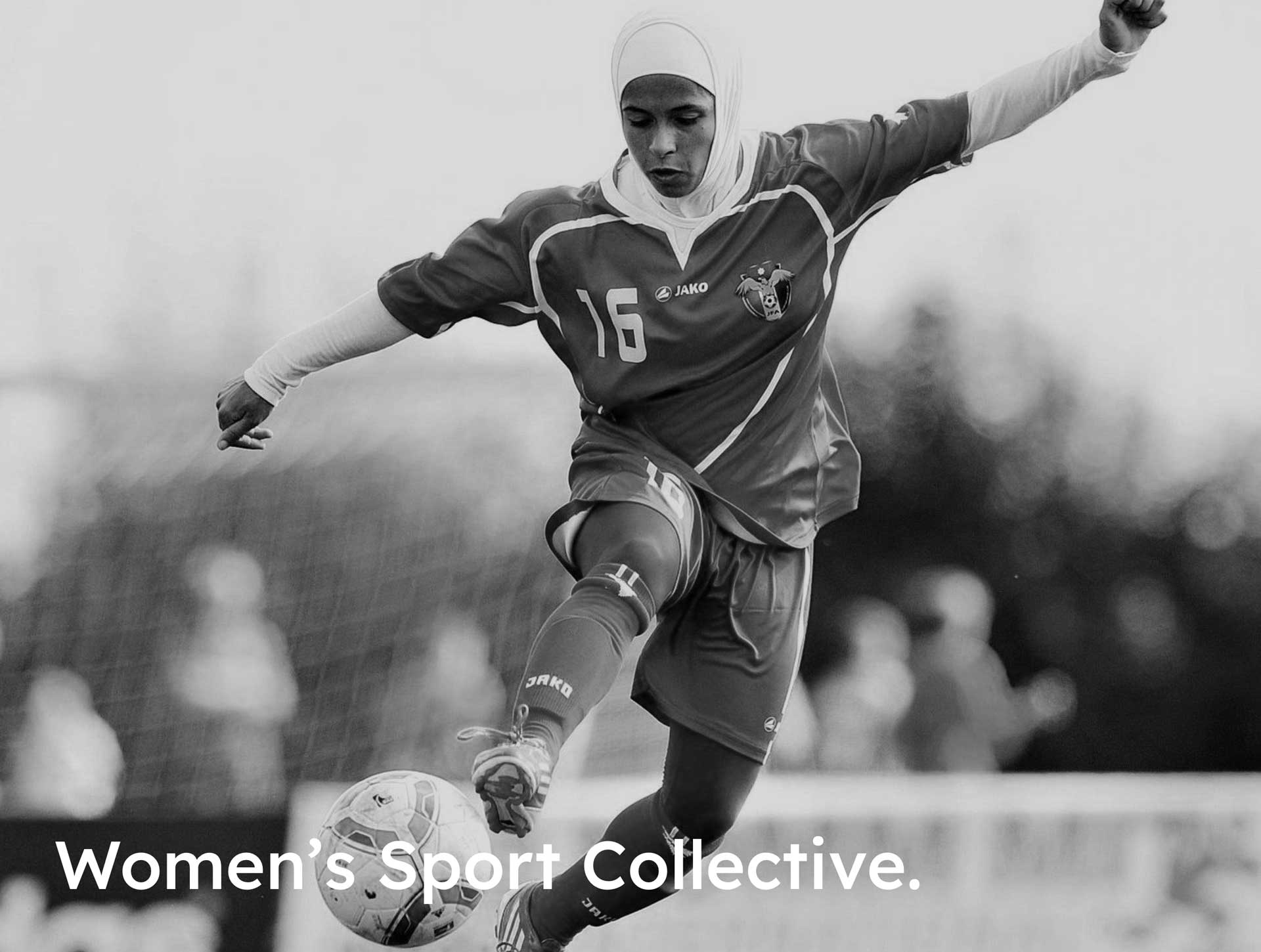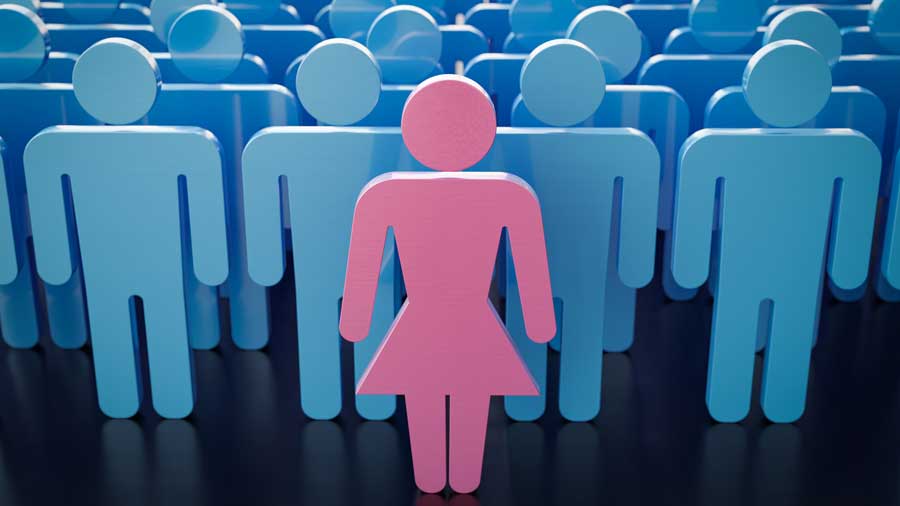INTERVIEW
“We’ve come to a realisation around equality and social justice, and we won’t put up with the status quo anymore”

GOVERNANCE

Radojka Miljevic
Partner, Campbell Tickell
To mark International Women’s Day and Fair Game’s conference on women’s football in March, I caught up with Sue Anstiss, the author of an inspiring examination and celebration of women in sport, Game On: The Unstoppable Rise of Women’s Sport.
Sue is someone whose life-long love of sport is infectious, reflected in her career in sports marketing and sponsorship, and in a range of initiatives she commits to. This includes her podcast, The Game Changers, on women who break down barriers and battle for equality, and the network for women who work in sport she founded with Kate Hannon, the Women’s Sport Collective, of which I’m a member.
Sue and I first met in the world of Active Partnerships (a network of local partnerships aimed at getting people active) and then again most recently at Lewes Football Club, where she is on the board of directors. We caught up one morning to mull over women in sport, and most particularly in football.
Why does women’s sport matter?
Sport is a source of joy in physical movement, and everyone deserves to have that in their lives. But there’s also the question of equality and parity: women should have fair access to sport and to all that comes with playing at the highest level, including decent financial contracts and the same level of support as men.
More broadly, it’s about what we communicate to wider society about women’s place and positioning. What does it mean when young women and girls don’t get mentioned, or are somehow seen as ‘less than’ men in how they are depicted? It makes us feel we are second-class citizens.
In my early sports marketing career I didn’t particularly question the sponsorship deals that were primarily in men’s sport and not women’s. Writing the book made me look back at my own history and I now see so clearly how women’s sport has been belittled in society. My concern is that this portrayal ripples out across society, and into other misogynistic behaviour, sexism and ultimately violence against women and girls.
How do you see the key gains for women’s sport in recent years?
External money coming into women’s sport, via sponsorship from big brands like Barclays and Vitality, makes a huge difference. The media coverage for women’s sport from broadcasters like the BBC and Sky has also been momentous.
Having free-to-air coverage on the BBC for the FA Women’s Super League (WSL) takes it to a completely new audience, and we’re seeing the huge impact of this with recent research from the Women’s Sport Trust.
More sports governing bodies agreeing that we should be paying women as professionals has helped women to realise their talent and skills, and attract an audience.
I think the gains are also about a change in society. We’ve come to a realisation around equality and social justice, and we won’t put up with the status quo anymore.
Tell me about the game changers we should all know more about?
There is the story of Constance Applebee who, in 1901, went from England to Harvard College to study and was shocked to discover physical activity and sport for young women included little more than musical chairs and ‘drop the handkerchief’. Constance became a champion for field hockey, spreading the word across US colleges.
She reminds us that women have been fighting the battle for equality for more than 100 years. Their stories haven’t been told but they did have an impact and they caused a shift, not just in men’s attitudes but also in what women thought possible. The view at the time was that women should be frail and weak and feminine. How must women like Constance have had to fight to be different to others around them?
What do you say to people who think there isn’t an audience for women’s football?
They need to remember that at the time of the First World War women had to take up traditional men’s work and that gave them time to play sport. This developed into football matches in large stadiums, which were hugely popular and there were more than 150 teams across the country. On Boxing Day 1920, 53,000 people were inside Everton’s Goodison Park stadium to watch Dick Kerr Ladies and St Helens Ladies play, and another 14,000 had to wait outside.
On 5 December 1921, the Football Association banned women’s football because of its lack of suitability for women and because they were getting paid. There was a desire to expand the leagues for men when they came back from the war. This ban spread across the world. Even now, we still haven’t got away from this view of what is suitable for ‘frail and weak’ women to do, whether that’s shorter matches or shorter distances.
The ban was in place for 50 years. Just imagine all that lost time – all that investment, structures and the rewards when football was becoming hugely commercial. It’s not just about equality and parity, it’s about equity.
There is so much still to do around the practical experience of the sport for girls playing today. Just think about what we see in schools. This then moves into the clubs, whether there is equality in terms of access to female coaches, the best pitches, changing rooms, etc.
“I now see so clearly how women’s sport has been belittled in society. My concern is that this portrayal ripples out across society, and into other misogynistic behaviour, sexism and ultimately violence against women and girls.”
We know men’s football has a poor financial model. What about the women’s game?
Will the women’s game be as profitable as the men’s, and do we even really want that? I believe women’s football should aspire to be a better version than men’s. Can it reinvent itself?
As women’s teams align themselves to men’s teams, does it just mean we fall, perhaps unthinkingly, into the same model? Is there a different moral compass for women’s sport? Does it have to be subsumed into male ways of doing things?
We are trying to do things differently at Lewes FC. They invest equally in their men and women’s teams, which is not just the right thing to do, but has already had a positive return with the gates having increased, more sponsors and increased ownership (the club is 100% fan owned).
It’s wonderful to see these ethics have turned out to be good business. But having said all that, we still need to win games because the more success we have the higher the profile of the club and the more impact we can have on the world of football and beyond.
So what would you do with your magic wand if you were granted your wishes?
It’s really about more investment. Brands are waking up and seeing the impact of women’s sport and how it also aligns with social change and can make a real difference. Visibility and spectator numbers matter, but we need the right quality of coverage and consistent visibility. Elite sport is entertainment after all, and that means getting the right product in the right places.



